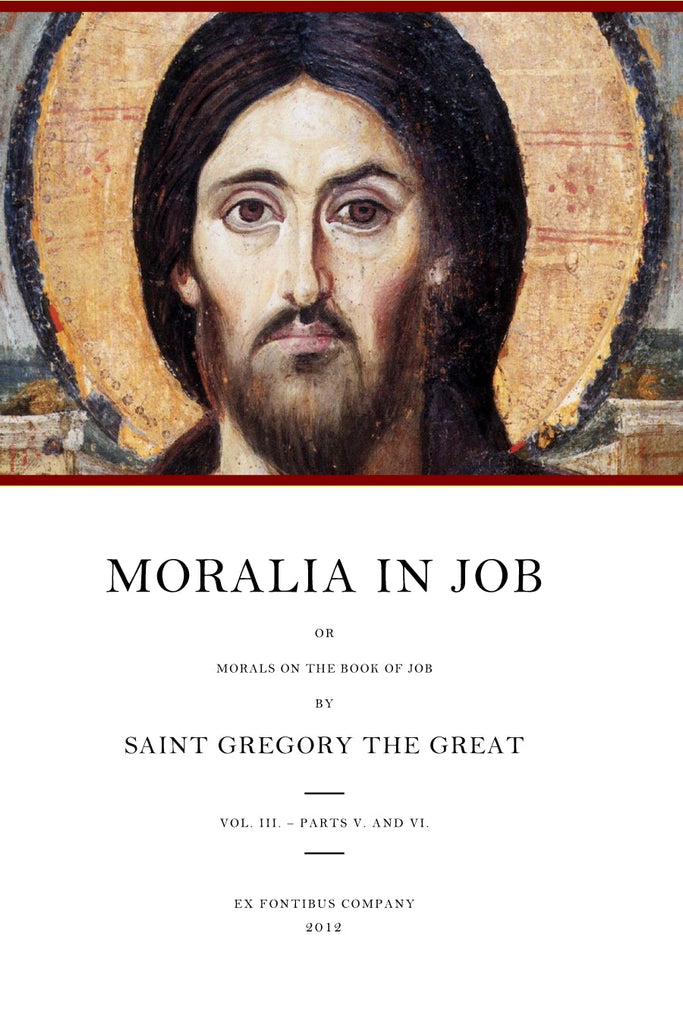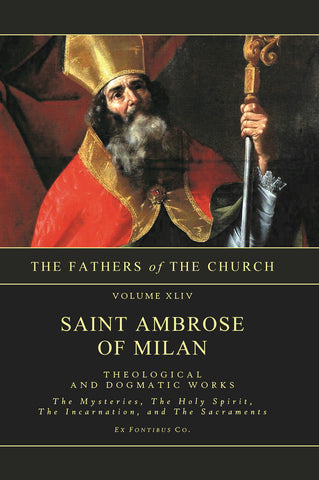
Gregory the Great - Moralia in Job; or Morals on the Book of Job, Vol. 3 (Books 23-35)
$ 20.77
Volume 3 of 3. Gregory the Great (pope 590–604) wrote his Moralia in Job, or moral homilies on Job, one of his greatest works, before his election to the See of Peter. Sent as papal envoy to Constantinople, he gathered there a community of ascetics to whom he preached these homilies.
In Gregory's reflections, Job is a figure of Christ, who suffered innocently—not for his sins but for the increase of his merits and the salvation of others by love. These homilies are a summa of Christian doctrine, from Creation to final Judgment, from the height of angelic hierarchies to the innermost depths of the human soul. Confident that the Holy Spirit has not idly chosen the words of Scripture, Gregory finds a depth of allegory out of which he draws a brilliant picture of Christ, whose humanity must mark our own and whose Cross is our path to eternal rest. A beautiful meditation on suffering, on the path from fear to love, and on the healing and glorification of the individual soul which, as a member of Christ’s body, comes to participate in the life of the holy Trinity. When Gregory was elected bishop of Rome just a few years later, he would continue to draw on and to develop the teaching herein, to guide the spiritual lives of his flock amidst the terror-filled final dissolution of the Western Empire. The teaching of the Moralia became a source for the doctors of the middle ages, including Hugh of St. Victor, St. Thomas Aquinas, St. Bonaventure, and many others. Western Christianity today owes an incalculable debt to the homilies that Gregory preached to his small circle of ascetics so many years ago.
In Gregory's reflections, Job is a figure of Christ, who suffered innocently—not for his sins but for the increase of his merits and the salvation of others by love. These homilies are a summa of Christian doctrine, from Creation to final Judgment, from the height of angelic hierarchies to the innermost depths of the human soul. Confident that the Holy Spirit has not idly chosen the words of Scripture, Gregory finds a depth of allegory out of which he draws a brilliant picture of Christ, whose humanity must mark our own and whose Cross is our path to eternal rest. A beautiful meditation on suffering, on the path from fear to love, and on the healing and glorification of the individual soul which, as a member of Christ’s body, comes to participate in the life of the holy Trinity. When Gregory was elected bishop of Rome just a few years later, he would continue to draw on and to develop the teaching herein, to guide the spiritual lives of his flock amidst the terror-filled final dissolution of the Western Empire. The teaching of the Moralia became a source for the doctors of the middle ages, including Hugh of St. Victor, St. Thomas Aquinas, St. Bonaventure, and many others. Western Christianity today owes an incalculable debt to the homilies that Gregory preached to his small circle of ascetics so many years ago.








